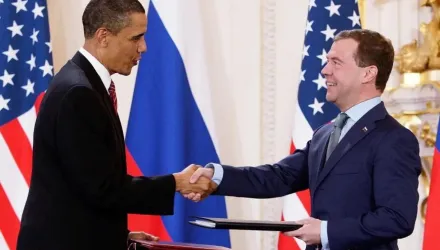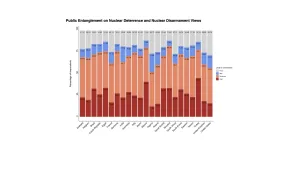In the North Korean nuclear standoff, there is a major difference between having leverage and the ability to use it. China has the former, but not the latter. North Korea has both.
On paper, China has the political, military and economic leverage to effect significant change in the North Korean regime's behaviour and the regime itself. The international community saw glimpses of this leverage when Beijing temporarily shut off an oil pipeline to North Korea in early 2003.
But China is significantly constrained by three factors that North Korea is aware of and uses to its advantage.
The first is China's concern about a North Korean refugee crisis. Pyongyang is keenly aware of Beijing's extreme sensitivity to the refugee issue.
For China, the prospect of growing numbers of North Koreans roaming around its northeastern provinces is a major concern. As these refugees settle in China, the message to those remaining in impoverished North Korea would be one of exodus.
Should that message spread throughout the country, a collapse of the Kim Jong-il regime could occur, resulting in a massive influx of refugees into China. Beijing's desire to avoid a full-blown refugee crisis was a major impetus for providing significant aid to North Korea when it almost became a failed state after the great famine in the late 1990s.
The second factor is China's focus on achieving its internal economic development goals. As tensions were escalating between Washington and Pyongyang after the October, 2002, revelation of North Korea's uranium weapons program, the Chinese leadership asked its policy analysts how a sudden collapse of the North Korean regime would affect China. The policy papers that focused on the impact on China's internal economic development received the closest attention.
South Korea is currently China's largest foreign direct investor in many key industries. Should North Korea collapse, the South would be forced to redirect significant portions of its investments to the North's reconstruction. With the Chinese objective of reaching a $3,000 (U.S.) GDP per capita figure by 2020, any disruption to the foreign direct investment inflow, critical to job and wealth creation in China, would make the attainment of this goal much more difficult. North Korea is keenly aware that this Chinese goal is another critical reason for Beijing to preserve North Korean stability by providing subsistence-level aid.
The third and most important factor is China's desire to uphold its newly earned reputation as an international statesman with its six-party talks process. Initially an effort to bring stability to the Korean peninsula in the wake of the uranium weapons dispute in 2002, China is now trying to resuscitate its multilateral creation. Ironically, while China's prestige has grown because of the six-party talks, so, too, has its exposure to North Korea's distinct negotiating style. Since North Korea is the centrepiece of the talks, Pyongyang knows its participation is an invaluable instrument with which it can extract further economic and political concessions from China.
For Pyongyang, each of these core Chinese concerns has been a North Korean opportunity to secure more aid. In this sense, North Korea possesses substantial leverage and the ability to use it. North Korea's Feb. 10 statement that it has nuclear weapons and will not attend the six-party talks for an indefinite period was effectively its version of applying leverage over China. Given what is at stake, the Chinese leadership can neither ignore nor press North Korea.
Instead, it can only bargain down and eventually agree to North Korea's terms for returning to the negotiating table in Beijing. Wang Jiarui, head of the Chinese Communist Party's international department, will be briefing the Chinese leadership on North Korea's shopping list after his recent visit to Pyongyang.
That list signifies how China is stuck squarely in the middle of the U.S.-North Korean nuclear feud. American pressure for a stern Chinese approach to dealing with Pyongyang will be met with the application of North Korean leverage on an increasingly beleaguered Chinese leadership intent on keeping the six-party talks alive. Cognizant that it will be treated as an outpost by Washington for the next four years, North Korea will be using more of its leverage over the Chinese to weather the neo-con storm.
If China is to stay above the deepening diplomatic quagmire, it will have to abandon its ad hoc approach to dealing with the nuclear crisis. This approach currently involves six countries with vastly differing priorities and policies — a combination of divergent interests that will continue to impede the development of a clear path to resolution.
What is urgently needed is a Chinese-sponsored multilateral road map for negotiating North Korea's nuclear disarmament. Within this framework, each party's priorities can be contextualized and discussed with references to actions and timetables. A multi-party blueprint needs to eventually emerge from the broader road map in order to build nascent trust and confidence where none exist.
China possesses the diplomatic tools with which to initiate this process.
The question remains whether Beijing will squander its dwindling diplomatic capital on further ad hoc efforts to bring North Korea back to an agenda-deficient table or start a new phase of road-map-focused meetings.
Without such a road map, the six-party talks will continue to be a shiny car without an engine. In the end, the talks will go nowhere and North Korea's leverage over China will grow.
John S. Park is a fellow at the Belfer Center for Science and International Affairs at Harvard University's John F. Kennedy School of Government.
Park, John. “North Korea's Grip on China.” Globe and Mail, February 23, 2005





